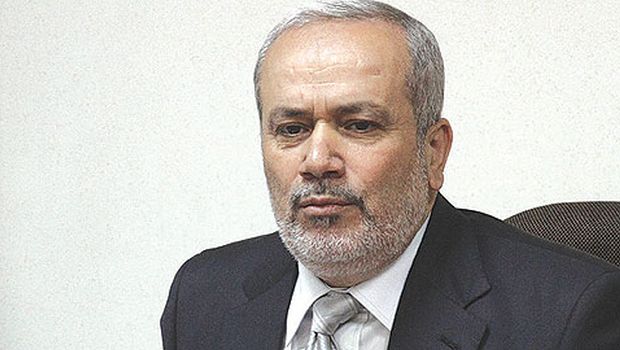Amman, Asharq Al-Awsat—Jordan’s minister of religious endowments and Islamic affairs has called for a comprehensive Arab and Islamic plan to “protect the Al-Aqsa Mosque in Jerusalem from Israeli violations.”
Speaking exclusively to Asharq Al-Awsat, Dr. Hayil Abdelhafeez Dawoud said Israeli violations “took a systematic and calculated form, and were no longer mere provocations by extremists.”
Dawoud claimed that his ministry “played a major role in preventing countless Israeli violations against the Al-Aqsa Mosque” but that help from Arab and Islamic states was needed to curb Israeli aggression and “constant violations,” because “the mosque belonged to all Muslims.”
Dawoud said the Al-Aqsa Mosque “has around 100 guards whose task is to stop Jewish extremists from storming the mosque and confront the occupation’s forces who provide protection for the Jewish extremists.” He said many of the staff had been injured and were detained by Israeli forces on numerous occasions while carrying out their duties.
Aside from the fact that both Israel and the Palestinians claim Jerusalem as their capital, the Al-Aqsa Mosque compound in the city is also venerated by both Muslims and Jews as a holy site.
It has been a periodic source of tension between the two sides. Earlier this year it was the scene of clashes between Israeli police and Palestinian protestors after the Knesset considered a proposal to extend Israeli control over the 35-acre complex.
Turning to internal Jordanian affairs, the minister said part of his ministry’s work was to monitor mosques and provide imams and other staff to supervise them. However, he added there was a shortage in staff due to the high rate of mosque-building in Jordan.
Asked about the politicizing of mosques by some religious parties, Dawoud said: “Mosques should not be used for the benefit of any political party or movement, because that could lead to division within society.”
He added: “We do not ban preachers from talking about politics and we tolerate political discourse, but only when it is balanced and moderate.”
Dawoud also accused the Jordanian branch of the Muslim Brotherhood of bias, and said: “The use by some of their preachers of mosques to promote the Brotherhood’s political agenda was prohibited,” because it was a form of “the politicizing of mosques.”
The minister also spoke about the recent outbreak of the MERS coronavirus in Saudi Arabia and the possible impact on this year’s Hajj.
He said the Saudi government suggests that elderly, pregnant women and people with illnesses should avoid the Hajj this year, because they were in the high-risk category due to their weaker immune systems.
He said: “We have passed on this advice to the Jordanian people in cooperation with the [Jordanian] health and information ministries, but we will not ban these pilgrims if they want to go, unless we are given other advice from our brothers in Saudi Arabia.”
On the Syrian refugee issue, Dawoud said the ministry’s efforts “may not be enough in terms of counseling, education and guidance in the Syrian refugee camps, especially in the Zaatari Camp.” He added that there were a number of mosques in the camp and that the ministry was doing its best to provide them with preachers.
He said the Syrian crisis brought with it a number of dangers, some of which were ideological, because some people had extremist ideologies and had contributed to the spread of these views.

